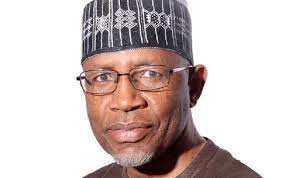The Securities and Exchange Commission (SEC) Nigeria has expressed strong optimism that the Nigerian capital market, being an organized and specialized financial market that drives capital mobilization through domestic savings and foreign capital inflows, is well positioned for the realization of the objectives of the 2023 Budget of Fiscal consolidation and Transition.
The SEC’s Director-General, Mr. Lamido Yuguda, who made this remark during a media chat in Abuja disclosed that the Nigerian equities market closed 2022 on a positive note as the NGX All-Share Index (ASI), which started at 42,716.40 points, ended at 51,251.06 points, indicating a 19.98% growth.
Similarly, he noted the FMDQ recorded a total market turnover of N199.88 trillion in the year under review, representing 0.5 percentage point higher than the N198.93 trillion in 2021.
Recalling that year 2022 is a turbulent one characterized by increased inflationary pressure and consequent increase in interest rates for the global economy, Yuguda, however, predicted that the inflationary pressures would be managed in the not too distant future.
The Director-General said: “Last year, the Nigerian economy faced several challenges, including worsening inflation, rising unemployment, huge fiscal deficit, insecurity, and floods. Additionally, oil theft and volatility in oil prices led to difficulties in foreign exchange management.
“In an attempt to tame inflation, the CBN raised the monetary policy rate four (4) times during the year, increasing the cost of financing for businesses and dampening corporate activity and performance;
“Despite these challenges, the Nigerian economy grew by 3.52% (year-on-year) in real terms, driven mainly by the services sector, which recorded a growth of 5.69% and contributed 56.27% to the aggregate GDP”, he added.
Yuguda, who also elaborately highlighted the various initiatives undertaken by the SEC to protect investors, make the equities market investment destination through standardization of its rules, including issuance of the new AML/CFT regulations and guidelines, amongst others, restated the commission’s commitment to zero tolerance to money laundering, terrorism and proliferation financing violations.
He advocated: “We must all ensure that we continue with the implementation of the revised Capital Market Master Plan (CMMP), alongside the implementation of other initiatives. Over the years, we have relied on the support of CAMMIC, Technical Committees and Working Groups in the implementation of the Master Plan.
“In line with the RCMMP, we will review and align the structure and scope of work of the various technical committees and working groups to ensure seamless implementation of the plan and continue to rely on the stakeholders”, the regulator added.
Yuguda assured that in protecting investors and creating an enabling environment for fit-and-proper capital market operators to thrive, the Commission will prioritize its planned increase of on-site inspections and improved collaboration with Trade Groups and other relevant stakeholders;
He commended the capital market community, for their unwavering commitment, which has played a crucial role in the Commission’s efforts to build a robust capital market adding that, their contributions and support have been instrumental to driving progress in the capital market and the country.






